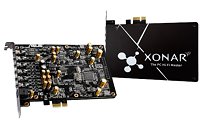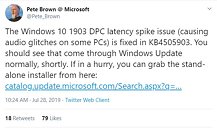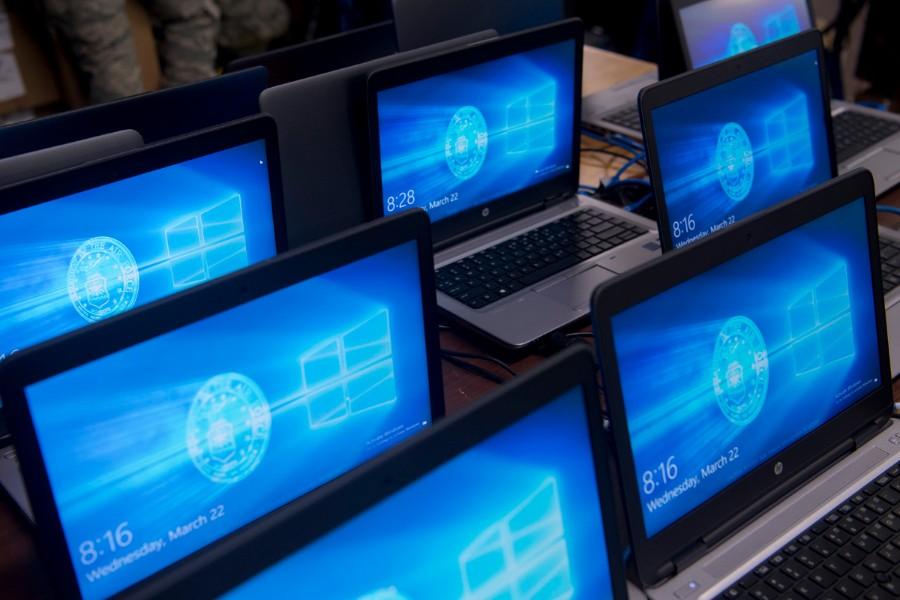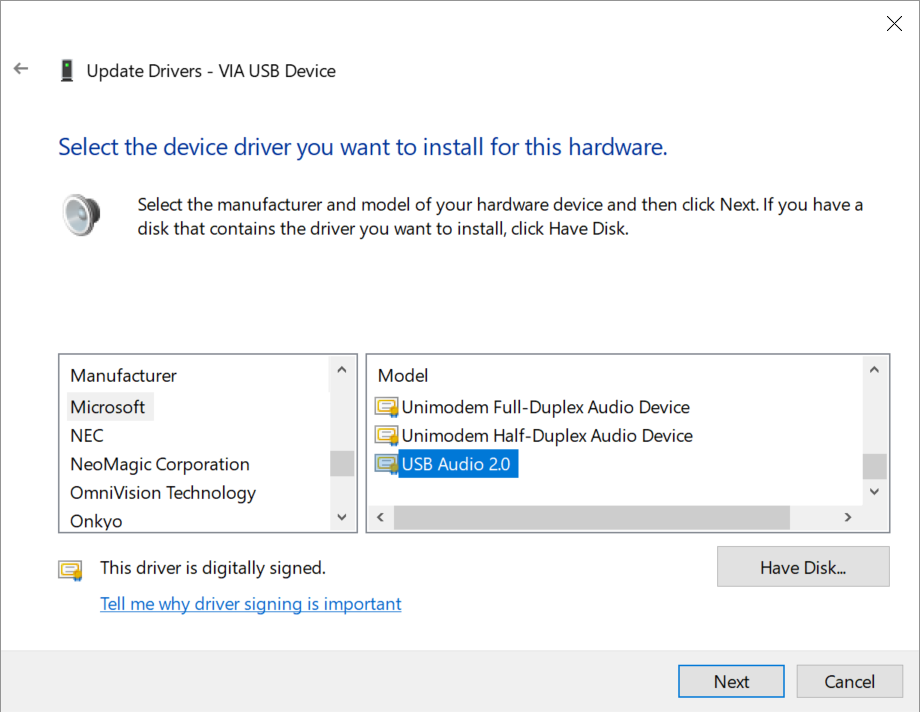- Joined
- Oct 9, 2007
- Messages
- 47,680 (7.43/day)
- Location
- Dublin, Ireland
| System Name | RBMK-1000 |
|---|---|
| Processor | AMD Ryzen 7 5700G |
| Motherboard | Gigabyte B550 AORUS Elite V2 |
| Cooling | DeepCool Gammax L240 V2 |
| Memory | 2x 16GB DDR4-3200 |
| Video Card(s) | Galax RTX 4070 Ti EX |
| Storage | Samsung 990 1TB |
| Display(s) | BenQ 1440p 60 Hz 27-inch |
| Case | Corsair Carbide 100R |
| Audio Device(s) | ASUS SupremeFX S1220A |
| Power Supply | Cooler Master MWE Gold 650W |
| Mouse | ASUS ROG Strix Impact |
| Keyboard | Gamdias Hermes E2 |
| Software | Windows 11 Pro |
Windows 10 May 2019 Update (version 1903) is the pinnacle of neglect and contempt Microsoft has shown towards the all-important audio subsystem of the modern PC. With it, Redmond has one-upped its last big move against audio, by killing the DirectSound hardware pipeline and mongrelizing PC audio under Intel's lousy and fundamentally anti-competitive Azalia specification that solves common audio compatibility problems under a scorched-earth guiding principle - "kill any feature that could possibly lick our aftersales support budget, by dumping every aspect of audio onto a very restrictive host-signal processing (HSP) architecture, let people come up with their own soft DSPs, because CPUs can handle them." Windows 1903 proves how this approach wasn't a silver bullet against PC audio problems, and is fallible.
I've never owned a PC without a discrete sound card. My first "multimedia PC experience" was powered by a Creative kit that included a Sound Blaster PCI, an Infra-CDROM drive, a clip-on mic, and tiny stereo speaker boxes. ISA-based integrated audio solutions back then were bested by greeting cards. I've since made it a habit to buy a sound card every 5 or so years. No gleaming SNR numbers by Realtek can convince me that an integrated audio solution can best a $100 discrete sound-card, and I've owned plenty of motherboards over the years with the most premium Azalia implementations (be it the ALC889 or the modern ALC1220). My current machines feature an ASUS Xonar AE (a bang-for-the-buck ESS ES9023P implementation with a 150 Ω amp), and a Creative SB Recon 3D. Both cards implement the Azalia pipeline at some level, to survive operating with post-Vista Windows. The SB Recon 3D uses a chip that converts PCIe to the HDA bus; while the Xonar AE uses a PCIe to USB chip and a USB (Azalia) to I2S chip (essentially a USB headset laid out on a sound card with a high-quality analog side). Both cards are borked after the "upgrade" to Windows 10 May 2019 Update (1903), and two successive "Patch Tuesday" updates haven't managed to solve it.

Symptoms
Audio stuttering and glitching, and lots of it. Think Winamp circa 1999 running on a Pentium 133 with its CPU priority toggle set to "low," and the CPU being subject to the rigors of Internet Explorer rendering Yahoo.com over a 56K PCI soft-MODEM. That bad! My AMD Ryzen 7 2700X has 8 cores and 32 GB of DDR4-2667 memory at its disposal, and yet iTunes playing back Apple Music Radio in the background with Google Chrome rendering Twitter is sufficient to send me 20 years back in time. My Intel Core i5-9400F doesn't fare any better.
What's Wrong
Drawing inspiration from the other world-famous Washingtonian product, the Boeing 737 MAX airplane, Microsoft introduced Windows 10 1903 with a boatload of insufficiently-documented under-the-hood changes. Some of these changes affect Deferred Procedure Call (DPC) tick-rate, causing spikes in DPC latency, affecting the audio pipeline. Focusrite beautifully summarized DPC affecting audio:
First Public Acknowledgment by Microsoft
Pete Brown, among other things, heads client-segment audio hardware user-experience at Microsoft, and Tweeted the first acknowledgment by Microsoft that it screwed up:

In the above Tweet, Pete posted a link to an Update applicable to Windows 1903 chronicled under KB4505903. This update was touted to fix audio glitches, and would go on to be part of the August Patch Tuesday rollout (you can separately download it here).
Did the Patch Work?
No. At least not in case of my sound cards. ASUS and Creative are possibly the last two discrete sound-card manufacturers with extensive lineups of discrete audio solutions in various form-factors (internal cards, external USB boxes, USB headsets, etc.), and even they haven't begun unpacking the mess that is 1903. The two have dozens of EOL sound cards between them (many still in the retail channel), and haven't updated their Windows 10-compatible drivers in years. My Xonar AE isn't EOL, yet. Realtek released updated HD Audio drivers for both its UAD and legacy driver-models. Most online tech communities simply advocate updating these single-origin Realtek drivers, and with KB4505903, the overwhelming majority of PC users who listen to Realtek CODECs have possibly solved their audio problems, prompting Pete's team to call it a day. But those on discrete audio solutions that don't get driver updates as regularly as Realtek CODECs do, are shortchanged. Pandering to "creators" no more?
What You can Try
If you want to take Microsoft's approach to solving problems (scorched earth) and absolutely, positively want your audio to work (maybe because you're a music composer whose discrete audio hardware puts food on the table), then paste the following line in an elevated Command Prompt and hit Enter (and reboot):
And when Pete's team has finally figured out how to use a discrete sound card, and released a patch that works, you can revert the above change to let Windows 1903 function as intended:
Or you can just disconnect your studio rig from the Internet, flick on CSM, and install Windows XP SP3 x64 over multi-boot.
View at TechPowerUp Main Site
I've never owned a PC without a discrete sound card. My first "multimedia PC experience" was powered by a Creative kit that included a Sound Blaster PCI, an Infra-CDROM drive, a clip-on mic, and tiny stereo speaker boxes. ISA-based integrated audio solutions back then were bested by greeting cards. I've since made it a habit to buy a sound card every 5 or so years. No gleaming SNR numbers by Realtek can convince me that an integrated audio solution can best a $100 discrete sound-card, and I've owned plenty of motherboards over the years with the most premium Azalia implementations (be it the ALC889 or the modern ALC1220). My current machines feature an ASUS Xonar AE (a bang-for-the-buck ESS ES9023P implementation with a 150 Ω amp), and a Creative SB Recon 3D. Both cards implement the Azalia pipeline at some level, to survive operating with post-Vista Windows. The SB Recon 3D uses a chip that converts PCIe to the HDA bus; while the Xonar AE uses a PCIe to USB chip and a USB (Azalia) to I2S chip (essentially a USB headset laid out on a sound card with a high-quality analog side). Both cards are borked after the "upgrade" to Windows 10 May 2019 Update (1903), and two successive "Patch Tuesday" updates haven't managed to solve it.

Symptoms
Audio stuttering and glitching, and lots of it. Think Winamp circa 1999 running on a Pentium 133 with its CPU priority toggle set to "low," and the CPU being subject to the rigors of Internet Explorer rendering Yahoo.com over a 56K PCI soft-MODEM. That bad! My AMD Ryzen 7 2700X has 8 cores and 32 GB of DDR4-2667 memory at its disposal, and yet iTunes playing back Apple Music Radio in the background with Google Chrome rendering Twitter is sufficient to send me 20 years back in time. My Intel Core i5-9400F doesn't fare any better.
What's Wrong
Drawing inspiration from the other world-famous Washingtonian product, the Boeing 737 MAX airplane, Microsoft introduced Windows 10 1903 with a boatload of insufficiently-documented under-the-hood changes. Some of these changes affect Deferred Procedure Call (DPC) tick-rate, causing spikes in DPC latency, affecting the audio pipeline. Focusrite beautifully summarized DPC affecting audio:
It goes on to postulate that outdated drivers for audio devices that have gone EOL (end of life) that aren't ready for dynamic DPC could effectively render your otherwise physically-perfect discrete sound cards unusable. "A common cause for DPC latency is out of date device drivers and Windows processes that are not optimized correctly. Many processes/drivers are involved in streaming audio and many other processes/drivers can cause interruptions in the audio stream."DPC (Deferred Procedure Call) is the operation that Windows uses to assign a priority to processes/drivers that run simultaneously in the same system. If processes that are involved in streaming audio aren't assigned high enough priority then various issues can occur since the audio will not be streamed correctly in 'real-time'. These can include pops/clicks, "glitchy" audio and device disconnections.
First Public Acknowledgment by Microsoft
Pete Brown, among other things, heads client-segment audio hardware user-experience at Microsoft, and Tweeted the first acknowledgment by Microsoft that it screwed up:

In the above Tweet, Pete posted a link to an Update applicable to Windows 1903 chronicled under KB4505903. This update was touted to fix audio glitches, and would go on to be part of the August Patch Tuesday rollout (you can separately download it here).
Did the Patch Work?
No. At least not in case of my sound cards. ASUS and Creative are possibly the last two discrete sound-card manufacturers with extensive lineups of discrete audio solutions in various form-factors (internal cards, external USB boxes, USB headsets, etc.), and even they haven't begun unpacking the mess that is 1903. The two have dozens of EOL sound cards between them (many still in the retail channel), and haven't updated their Windows 10-compatible drivers in years. My Xonar AE isn't EOL, yet. Realtek released updated HD Audio drivers for both its UAD and legacy driver-models. Most online tech communities simply advocate updating these single-origin Realtek drivers, and with KB4505903, the overwhelming majority of PC users who listen to Realtek CODECs have possibly solved their audio problems, prompting Pete's team to call it a day. But those on discrete audio solutions that don't get driver updates as regularly as Realtek CODECs do, are shortchanged. Pandering to "creators" no more?
What You can Try
If you want to take Microsoft's approach to solving problems (scorched earth) and absolutely, positively want your audio to work (maybe because you're a music composer whose discrete audio hardware puts food on the table), then paste the following line in an elevated Command Prompt and hit Enter (and reboot):
BCDEDIT /SET DISABLEDYNAMICTICK YES
And when Pete's team has finally figured out how to use a discrete sound card, and released a patch that works, you can revert the above change to let Windows 1903 function as intended:
BCDEDIT /SET DISABLEDYNAMICTICK NO
Or you can just disconnect your studio rig from the Internet, flick on CSM, and install Windows XP SP3 x64 over multi-boot.
View at TechPowerUp Main Site







